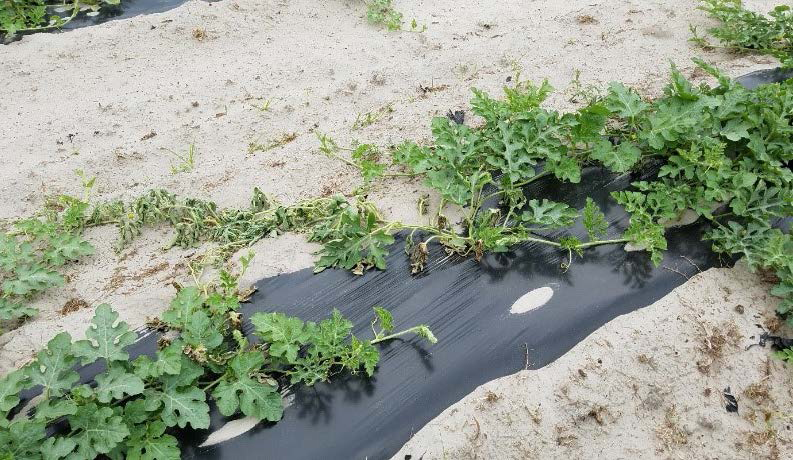By Clint Thompson
Overall disease pressure in North Florida watermelons remains low. A big reason for that is the lack of fusarium wilt.

Credit: N. Dufault, UF/IFAS
Bob Hochmuth, University of Florida Institute of Food and Agricultural Sciences (UF/IFAS) regional specialized Extension agent in Live Oak, Florida, believes the unseasonably warm weather conditions in late February and early March contributed to the lack of wilt pressure early in the season.
“Up to this point in the season, I would say that we have seen less fusarium than we normally would at this time of year. I attribute that mostly to the extremely warm February and early March when these watermelons were planted,” Hochmuth said. “We know that the watermelon has the competitive advantage over fusarium when the soil temperatures are very high. They have a competitive disadvantage to fusarium when the soil temperatures are really low. This year when those plants were being planted, we had really high soil temperatures, where in many cases in the upper part of the soil under the plastic, the temperatures easily get to 100 degrees (Fahrenheit) or higher in the top inch or two. That kind of situation is not conducive to fusarium wilt.
“(Overall) things are still pretty clean. We’ve only seen occasional problems with bacteria after some of the cold rainy periods that we had. We haven’t seen anything begun to move here really yet.”
Fusarium wilt of watermelon is caused by the fungus Fusarium oxysporum f. sp. Niveum, according to UF/IFAS. The pathogen is host-specific to watermelon and will not cause disease on other closely related cucurbits or noncucurbit hosts.
The first field symptoms in watermelon plants will be dull gray-green leaves and wilting during the hottest part of the day. Wilted plants can recover at night, but over time, symptoms become permanent. Infected plants eventually collapse and die.









